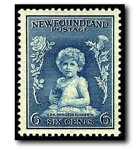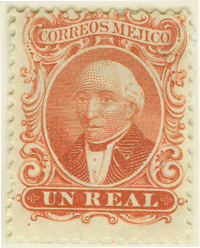
Discussion - Member to Member Sales - Research Center

Discussion - Member to Member Sales - Research Center


Login to Like
this post
More than two.
First issue was watermarked Tudor CrownE2R.
Second St. Edwards Crown E2R.
Third St Edwards Crown Multiple.
Also there were issues with Graphite lines on reverse, Phosphor lines on face and also Phosphor and Graphite lines combined.
Somewhere on Stamporama is a posting I made some years ago of the various pages.
EDIT. to add link to old post.
https://stamporama.com/discboard/disc_main.php?action=20&id=18015#134890

Login to Like
this post
Hi Thank you for that info I did not explain to well staying with the same 1952 are there two different printings, recently purchased a collection which seem to suggest in the way it was mounted that there could be two variations of the exact same issue?

Login to Like
this post
No the 1952 only had the Tudor E2R watermark but did come with Sideways and Inverted watermarks.
The various varieties are shown in the link above.
Maybe you could show scan of what you have.

Login to Like
this post
Yes I understand the inverted and sideways but comparing these two sets they do appear different could one issue come with cream paper as so many others later on

Login to Like
this post
Is there already a Queen Elizabeth the eleventh?? Have I been asleep that long? What year is it now? Where am I?

2 Members
like this post.
Login to Like.
As far as I am aware they only came on the one paper type but I do not have a QE2 Specialized catalogue but there is no mention in any of the catalogues I do have. Maybe someone who has can comment.
Still be nice to see what the scans look like.

Login to Like
this post
Please see scans in each case the ones to the right are shown in the collection as the first issue followed by the ones to the left,to my eyes I see a change in the brightness of the colours to the left
to the left

Login to Like
this post
The papers appear to be the same but maybe the shades of colour are slightly different, the first two pairs more so than the last pair.

Login to Like
this post
Yes I also checked watermark they are the same I guess just a change in colours, anyway thank you for your comments

Login to Like
this post
This is from the postal museum site.
WATERMARK AND PAPER CHANGES
All the stamps were issued in the first instance in sheets of 240 on uncoated paper with the
Tudor Crown watermark. In the course of 1955-56 this was replaced by the St Edward’s
Crown watermark, and again by the Multiple Crowns between 1958 and 1960. Chalk surfaced
paper was later used for the ½d and 2½d values in 2s Holiday stamp books of July
1963, but not otherwise. Other changes followed the introduction of automatic letter sorting
equipment, facilitated at first by the graphite-lined issues of 1957-59 and by
phosphor lines from 1960 onwards – an ‘interim’ version had phosphor bands applied to
graphite-lined stamps. Stamp paper changed in colour, from cream to white; it was noticed
that heavy rains on several occasions during the 1950s had the effect of cleansing the
normally brackish water supply to the Ivybridge Mills in Devon where paper for the stamp
printer Harrisons was made, and that the resulting product was whiter than the norm. From
1962 the water supply was permanently pre-filtered and ‘white wove’ stamp paper replaced
‘cream wove’. Another factor that l brightened the appearance of stamp paper was that the
rag waste used in the manufacturing process contained increasing residues of detergents,
while these tended to contain optical brightening agents (OBAs) as a standard ingredient;
by the end of the Wilding era OBAs were routinely used in the manufacture of paper for
stamps.

Login to Like
this post
Here is the site, it is a pdf download detailing the history of design and printing of the Wildings.
https://www.postalmuseum.org/wp-content/uploads/2018/12/14-Stamp-History-QEII-1952-64-Wildings.pdf

Login to Like
this post
Crumbs! a wealth of information that's great thank you you must be a collector of these issues I shall check out the link you have shown.

Login to Like
this post
10:15:54am
Question are there two different issues of this same set?

Login to Like
this post

re: QE11 GB 1952 SG#515-531
More than two.
First issue was watermarked Tudor CrownE2R.
Second St. Edwards Crown E2R.
Third St Edwards Crown Multiple.
Also there were issues with Graphite lines on reverse, Phosphor lines on face and also Phosphor and Graphite lines combined.
Somewhere on Stamporama is a posting I made some years ago of the various pages.
EDIT. to add link to old post.
https://stamporama.com/discboard/disc_main.php?action=20&id=18015#134890

Login to Like
this post
12:10:13pm
re: QE11 GB 1952 SG#515-531
Hi Thank you for that info I did not explain to well staying with the same 1952 are there two different printings, recently purchased a collection which seem to suggest in the way it was mounted that there could be two variations of the exact same issue?

Login to Like
this post

re: QE11 GB 1952 SG#515-531
No the 1952 only had the Tudor E2R watermark but did come with Sideways and Inverted watermarks.
The various varieties are shown in the link above.
Maybe you could show scan of what you have.

Login to Like
this post
12:43:56pm
re: QE11 GB 1952 SG#515-531
Yes I understand the inverted and sideways but comparing these two sets they do appear different could one issue come with cream paper as so many others later on

Login to Like
this post
12:53:59pm
re: QE11 GB 1952 SG#515-531
Is there already a Queen Elizabeth the eleventh?? Have I been asleep that long? What year is it now? Where am I?

2 Members
like this post.
Login to Like.

re: QE11 GB 1952 SG#515-531
As far as I am aware they only came on the one paper type but I do not have a QE2 Specialized catalogue but there is no mention in any of the catalogues I do have. Maybe someone who has can comment.
Still be nice to see what the scans look like.

Login to Like
this post
01:05:53pm
re: QE11 GB 1952 SG#515-531
Please see scans in each case the ones to the right are shown in the collection as the first issue followed by the ones to the left,to my eyes I see a change in the brightness of the colours to the left
to the left

Login to Like
this post

re: QE11 GB 1952 SG#515-531
The papers appear to be the same but maybe the shades of colour are slightly different, the first two pairs more so than the last pair.

Login to Like
this post
01:53:02pm
re: QE11 GB 1952 SG#515-531
Yes I also checked watermark they are the same I guess just a change in colours, anyway thank you for your comments

Login to Like
this post

re: QE11 GB 1952 SG#515-531
This is from the postal museum site.
WATERMARK AND PAPER CHANGES
All the stamps were issued in the first instance in sheets of 240 on uncoated paper with the
Tudor Crown watermark. In the course of 1955-56 this was replaced by the St Edward’s
Crown watermark, and again by the Multiple Crowns between 1958 and 1960. Chalk surfaced
paper was later used for the ½d and 2½d values in 2s Holiday stamp books of July
1963, but not otherwise. Other changes followed the introduction of automatic letter sorting
equipment, facilitated at first by the graphite-lined issues of 1957-59 and by
phosphor lines from 1960 onwards – an ‘interim’ version had phosphor bands applied to
graphite-lined stamps. Stamp paper changed in colour, from cream to white; it was noticed
that heavy rains on several occasions during the 1950s had the effect of cleansing the
normally brackish water supply to the Ivybridge Mills in Devon where paper for the stamp
printer Harrisons was made, and that the resulting product was whiter than the norm. From
1962 the water supply was permanently pre-filtered and ‘white wove’ stamp paper replaced
‘cream wove’. Another factor that l brightened the appearance of stamp paper was that the
rag waste used in the manufacturing process contained increasing residues of detergents,
while these tended to contain optical brightening agents (OBAs) as a standard ingredient;
by the end of the Wilding era OBAs were routinely used in the manufacture of paper for
stamps.

Login to Like
this post

re: QE11 GB 1952 SG#515-531
Here is the site, it is a pdf download detailing the history of design and printing of the Wildings.
https://www.postalmuseum.org/wp-content/uploads/2018/12/14-Stamp-History-QEII-1952-64-Wildings.pdf

Login to Like
this post
05:36:19pm
re: QE11 GB 1952 SG#515-531
Crumbs! a wealth of information that's great thank you you must be a collector of these issues I shall check out the link you have shown.

Login to Like
this post

